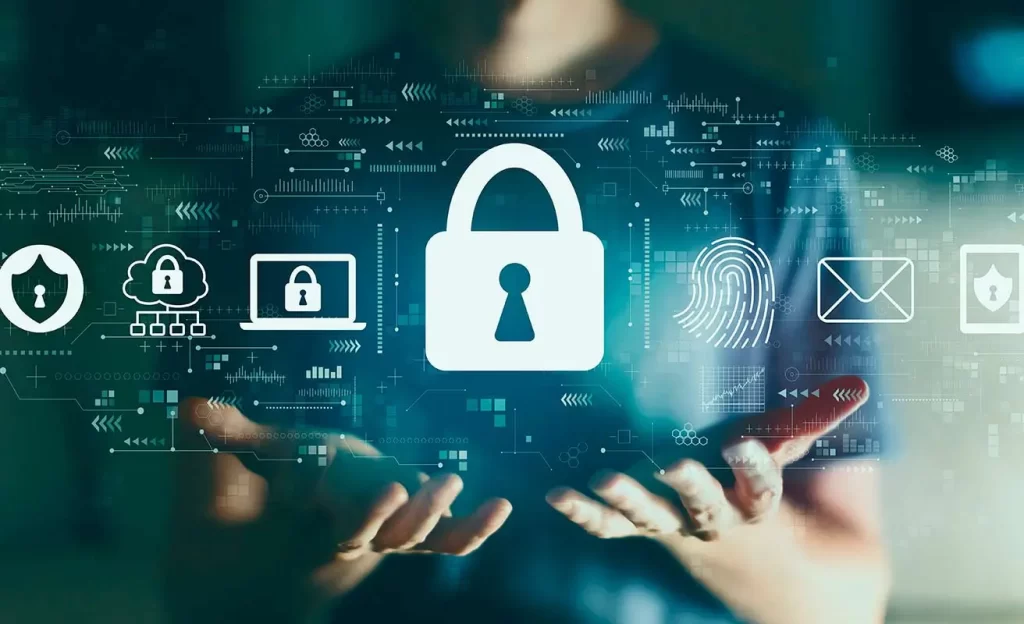As we stand on the brink of a new technological era, 5G is poised to revolutionize industries and everyday life. From ultra-fast internet to real-time communication and interconnected smart systems, 5G promises to transform how we live, work, and interact with the world. Especially in 5G phones, which provide great convenience for people’s online lives. However, with this transformation comes significant challenges—chief among them, the issue of 5G security. This article explores how 5G cybersecurity will play a crucial role in shaping the future of technological innovation. It will also ensure a safe, resilient, and trustworthy digital future.
The Role of 5G Security in the Digital Transformation
The deployment of 5G networks marks a major step forward in global connectivity. With speeds up to 100 times faster than 4G, 5G will enable technologies like the Internet of Things (IoT). It will also support autonomous vehicles, remote healthcare, and the development of smart cities. These innovations, while promising, depend on the secure transmission of vast amounts of data. As more devices, systems, and applications become interconnected, ensuring the security of 5G networks becomes paramount.
5G security is not just about protecting individual networks but about safeguarding the entire digital ecosystem. The integrity, availability, and confidentiality of data transmitted over 5G networks will directly influence the success of emerging technologies. For instance, in autonomous vehicles, secure communication between vehicles and infrastructure is vital for safety. In healthcare, protecting patient data from cyber threats is non-negotiable.

Unique Security Challenges of 5G Networks
While 5G offers numerous benefits, it also introduces new security challenges that we must address:
- Increased Attack Surface: 5G networks will support a massive increase in connected devices. This will expand the potential attack surface, making networks more vulnerable to cyberattacks. Securing billions of IoT devices, autonomous systems, and data transmissions requires robust security protocols and continuous monitoring.
- Decentralized Infrastructure: Unlike previous generations, 5G relies on a more decentralized infrastructure with small cell networks. While this design increases efficiency, it also introduces additional vulnerabilities. Securing these distributed elements against attacks such as Distributed Denial of Service (DDoS) becomes crucial.
- Virtualization and Network Slicing: 5G uses technologies like network slicing and virtualization, which allow multiple, isolated virtual networks to operate on the same physical infrastructure. While this enables greater flexibility and resource optimization, it also requires advanced security measures to ensure each network slice is isolated and protected from malicious activity.
- Supply Chain Risks: The complexity of 5G technology also involves a diverse global supply chain, which presents risks from malicious actors who may infiltrate hardware or software components. Securing the supply chain to ensure that components and software are trustworthy and not tampered with is an ongoing challenge.
Key Strategies to Secure 5G Networks
To mitigate these risks and ensure 5G fulfills its transformative potential, we need to implement several key strategies:
- End-to-End Encryption: Encrypting data at all stages of transmission is essential to prevent unauthorized access. End-to-end encryption ensures that data remains secure from the moment it is generated to its final destination, making it nearly impossible for attackers to intercept or alter sensitive information.
- Zero Trust Security Models: A Zero Trust security model assumes that threats can exist both inside and outside the network. This model requires continuous verification of users and devices before granting access to network resources. By implementing Zero Trust, 5G networks can minimize the risk of internal breaches and reduce the impact of potential attacks.
- AI and Machine Learning for Threat Detection: Artificial intelligence (AI) and machine learning (ML) technologies can play a key role in detecting and mitigating threats in real time. AI algorithms can analyze vast amounts of data, identify abnormal patterns, and respond to potential security threats more quickly than traditional systems.
- Collaboration Between Stakeholders: Governments, private companies, and international organizations must work together to establish global security standards and best practices for 5G. Collaborative efforts are needed to ensure that security is embedded into the entire lifecycle of 5G networks, from design and deployment to operation and maintenance.
- Securing the Supply Chain: To prevent risks from compromised hardware or software, companies must adopt secure sourcing practices and verify the integrity of all components used in the creation of 5G infrastructure. Additionally, regular audits and compliance checks can help identify and mitigate potential vulnerabilities before they are exploited.

The Future Impact of 5G Security on Tech Innovation
The security of 5G networks will directly impact the pace and scale of technological innovation. As more industries adopt 5G-enabled solutions, secure networks will foster an environment of trust that is essential for growth. With robust security measures in place, businesses and consumers will have greater confidence in the technologies that rely on 5G. These technologies include autonomous systems, smart devices, and real-time data processing.
The success of 5G security will also pave the way for future innovations in network infrastructure, such as 6G, which experts are already conceptualizing. As new technologies continue to evolve, the lessons learned from securing 5G networks will be invaluable. These lessons will help shape the development of even more advanced and secure network systems.
Conclusion
The 5G revolution is not just about faster speeds or more connected devices—it’s about transforming industries and enabling innovations that were previously unimaginable. However, for this revolution to reach its full potential, the security of 5G networks must be prioritized. By addressing the unique challenges of 5G security and implementing advanced protection strategies, we can ensure its success.
This will ensure 5G powers a new era of technological innovation in a safe, secure, and trustworthy manner. As we shape the future of tech, we will make security the cornerstone upon which the digital world is built.